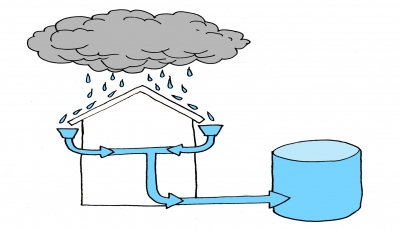Discovering the Value of Reclaim Waste in Sustainable Waste Administration Campaigns
In the world of lasting waste monitoring, the idea of redeeming waste becomes an important element that demands attention and consideration. As we browse the complexities of modern-day waste disposal methods, the significance of redeeming waste introduces a nuanced approach to mitigating environmental influence and fostering a much more sustainable future. By analyzing the elaborate interaction between waste reclamation and sustainable waste monitoring efforts, we start to decipher a story that prolongs past conventional garbage disposal techniques. With a lens that focuses on resource efficiency and ecological preservation, recovering waste offers an engaging avenue for resolving pressing ecological challenges while paving the way for innovative options in the world of waste administration.
Relevance of Reclaiming Waste
Why is redeeming waste necessary in lasting waste administration methods? Redeeming waste plays an essential function in sustainable waste management by reducing the amount of waste sent out to land fills, preserving all-natural sources, and lessening environmental impact.
Moreover, recovering waste promotes a circular economic situation where products are recycled and recycled continuously, advertising a much more sustainable and efficient use of resources. It additionally adds to the creation of green jobs and financial growth in the recycling and waste administration sector. By including waste improvement practices right into waste monitoring communities, organizations and approaches can move in the direction of a much more sustainable future, where waste is checked out not as a burden yet as an important source.
Benefits for the Atmosphere
In the world of sustainable waste administration, the practice of recovering waste not just decreases and preserves natural resources waste sent out to garbage dumps yet likewise yields considerable advantages for the atmosphere. By redeeming waste materials, such as steels, glass, plastics, and organic issue, the ecological impact of source extraction and manufacturing is decreased (Reclaim Waste). This causes decreased energy intake, reduced greenhouse gas discharges, and reduced degrees of air and water pollution related to drawing out resources
In addition, reclaiming waste aids in the conservation of biodiversity and all-natural environments. It decreases the demand for land fill space, therefore minimizing land deterioration and habitat damage. Furthermore, the procedure of redeeming waste frequently involves recycling and repurposing materials, which consequently lowers the need for brand-new items and the linked power and resources required for their manufacturing.
Contribution to Circular Economic Situation
Playing a pivotal function in promoting sustainability and resource effectiveness, redeeming waste makes a significant contribution to the circular economy. By reintroducing disposed of products back right into the manufacturing cycle, reclaiming waste lessens the requirement for virgin sources, thereby decreasing the general environmental influence of source extraction and usage. This procedure straightens with the concepts of the round economic climate, which emphasizes making the most of the worth and energy of sources through closed-loop systems.
As an outcome, redeeming waste assists to produce a much more sustainable and durable economy that is much less dependent on limited sources and susceptible to interruptions in the supply chain. Ultimately, by incorporating waste reclamation techniques into waste management businesses, areas and efforts can proactively contribute to constructing an extra round and regenerative economic climate.
Minimizing Landfill Waste

Education and learning and awareness campaigns on correct waste disposal and the relevance of lowering, reusing, and recycling can additionally play an important role in lowering garbage dump waste. By focusing on the reduction of garbage dump waste, lasting waste administration techniques can be improved, leading to a much healthier environment and economic climate.

Future Implications
Taking into consideration the quick improvements in innovation and evolving ecological obstacles, the future ramifications of lasting waste administration are poised to change existing practices. The fostering of cutting-edge modern technologies such as expert system, Internet of Things (IoT), and blockchain can substantially improve waste monitoring, arranging, and recycling procedures. These improvements enable real-time monitoring of waste streams, identification of recyclable materials, and enhanced efficiency in source allotment.
Moreover, the change towards a round economic situation model, where sources are reused, reused, or upcycled, will come to be increasingly widespread. This change not only decreases the dependence on virgin materials yet likewise reduces waste generation, bring about a much more ecologically pleasant and sustainable waste monitoring method.
Furthermore, the assimilation of lasting waste administration practices right into broader sustainability programs is expected to gain traction. Liquid waste removal. Organizations and governments worldwide are recognizing the relevance of waste reduction and recycling in combating environment adjustment and promoting a round economy. Because of this, regulations and plans sustaining lasting waste administration initiatives are likely to become extra strict, driving sectors in the direction of even more environmentally friendly methods
Final Thought
In conclusion, the significance of redeeming waste in lasting waste administration efforts can not be overemphasized. By recovering waste, we can lower Homepage ecological influence, contribute to a circular economy, and minimize garbage dump waste.
By taking a look at the detailed interaction in between waste recovery and lasting waste monitoring efforts, we begin to decipher a narrative that expands past traditional waste disposal methods. Reclaiming waste plays a crucial duty in lasting waste administration by decreasing the amount of waste sent out to land fills, saving natural sources, and lessening environmental impact. By incorporating waste recovery methods right into waste management companies, neighborhoods and techniques can relocate in the direction of a more sustainable future, where waste is checked out not as a concern yet as a useful source.
